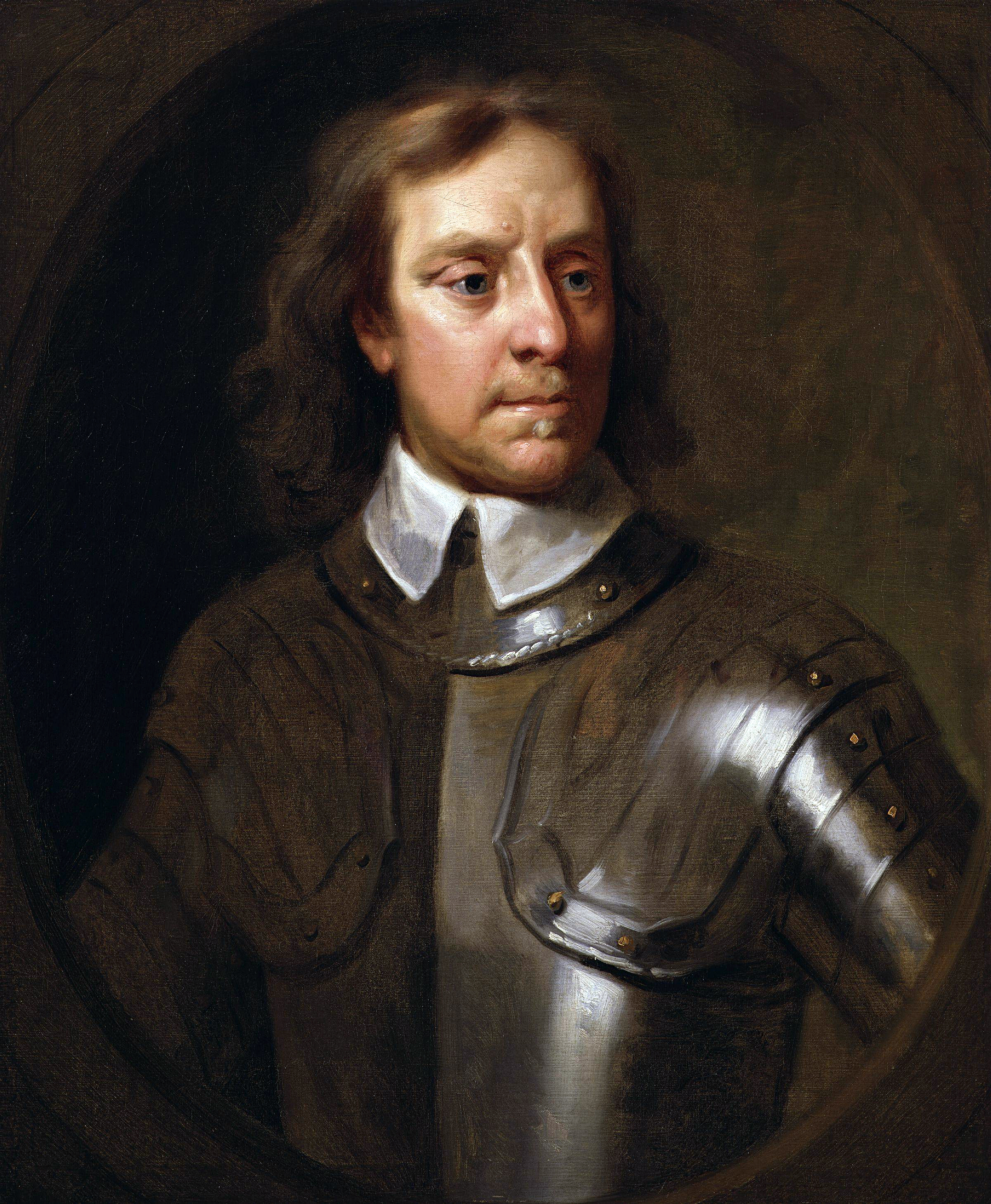„Mein Plan ist es, mich zu beeilen, vergangen zu sein.“
Letzte Worte, 3. September 1658
Original engl.: "My design is to make what haste I can to be gone."
Oliver Cromwell war während der kurzen republikanischen Periode der englischen Geschichte Lordprotektor von England, Schottland und Irland. Ursprünglich ein einfacher Abgeordneter des englischen Unterhauses, stieg er im Bürgerkrieg des Parlaments gegen König Karl I. erst zum Organisator, dann zum entscheidenden Feldherrn des Parlamentsheeres auf. Mit der von ihm betriebenen Hinrichtung Karls endeten alle Versuche der Stuart-Könige, England in einen absolutistisch regierten Staat umzuwandeln. Allerdings scheiterten am Ende auch Cromwells Bestrebungen, England dauerhaft in eine Republik umzuwandeln.
In der Geschichte der Britischen Inseln ist Cromwell eine umstrittene Persönlichkeit. Manche Historiker bewerten ihn als Königsmörder und Diktator, während er anderen als Freiheitsheld gilt. In einer Umfrage der BBC von 2002 wurde er als Zehnter unter den 100 Greatest Britons gewählt. In Irland ist er wegen seiner brutalen Maßnahmen gegen die katholische Bevölkerungsmehrheit, die von manchen Historikern als „genozidal“ bezeichnet wurden, verhasst.
Wikipedia

„Mein Plan ist es, mich zu beeilen, vergangen zu sein.“
Letzte Worte, 3. September 1658
Original engl.: "My design is to make what haste I can to be gone."
Response to John Lambert's remarks that he "was glad to see we had the nation on our side" as they were cheered by a crowd in June 1650; as quoted by Gilbert Burnet in History of My Own Time http://books.google.com/books?id=-iswAAAAYAAJ&q="do+not+trust+to+that+for+these+very+persons+would+shout+as+much+if+you+and+I+were+going+to+be+hanged"&pg=PA145#v=onepage (1683); also in in God's Englishman by Christopher Hill (1970), Ch. VII, p. 188
“I need pity. I know what I feel. Great place and business in the world is not worth looking after.”
Letter to Richard Mayor (July 1650)
On the passing of the revolutionary Grand Remonstrance of November 1641 listing Parliament's grievances against King Charles I, as quoted in A History of the Rebellion (first published 1702 – 1704) by Edward Hyde, Earl of Clarendon (1609 - 1674)
Answer to the Conference at the Committee at Whitehall, Second Protectorate Parliament (13 April 1657), quoted in The Diary of Thomas Burton, esq., volume 2: April 1657 - February 1658 (1828), p. 504
On his forcible dissolution of parliament (April 1653) quoted in Flagellum: or the Life and Death Birth and Burial of Oliver Cromwell the Late Usurper (1663) by James Heath
To the First Protectorate Parliament (12 September 1654)
Speech dissolving the First Protectorate Parliament (22 January 1655)
On the Quakers, after meeting with George Fox, as quoted in Autobiography of George Fox (1694)
Speech to the "Barebones Parliament" (July 1653)
“I beseech you, in the bowels of Christ, think it possible you may be mistaken.”
Letter to the general assembly of the Church of Scotland (3 August 1650)
Answer to the Conference at the Committee at Whitehall, Second Protectorate Parliament http://www.british-history.ac.uk/report.asp?compid=36885 (13 April 1657), quoted in The Diary of Thomas Burton, esq., volume 2: April 1657 - February 1658 (1828), pp. 496-497
“Put your trust in God, but keep your powder dry.”
Attributed by William Blacker (not to be confused with Valentine Blacker), who popularized the quote with his poem "Oliver's Advice" http://books.google.com/books?id=JmEaAQAAIAAJ&dq=%22Oliver%27s+Advice%22+Cromwell&q=%22Oliver%27s+Advice%22+Cromwell#v=snippet&q=%22Oliver's%20Advice%22%20Cromwell&f=false, published under the pseudonym Fitz Stewart in The Dublin University Magazine, December 1834, p. 700; where the attribution to Cromwell appears in a footnote describing a "well-authenticated anecdote" that explains the poem's title. The repeated line in Blacker's poem is "Put your trust in God, my boys, but keep your powder dry".
Attributed
Variante: Trust in God and keep your powder dry.
Variante: Put your trust in God, but keep your powder dry.
Reported remarks over the body of Charles I after his execution (January 1649), as quoted in Oliver Cromwell : A History (1895) by Samuel Harden Church, p. 321
“Being comes before well-being.”
As quoted by Chief Justice John Greig Latham in his sole dissent in Australian Communist Party v Commonwealth (1951), for his argument that defence is the pre-eminent responsibility of the state
Attributed